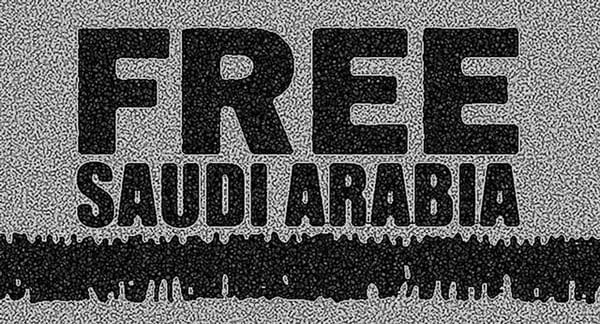
October 11, 2018; Time
After worldwide outrage at the disturbing disappearance of a Saudi journalist inside the Saudi consulate in Istanbul, the spotlight is back on a country with a history of suppressing human rights and civil society.
Jamal Khashoggi, a recent resident of Virginia and a writer for the Washington Post, was last seen October 2nd when he visited the consulate to acquire paperwork for his upcoming marriage. Turkish officials claim he was murdered and are pointing to top Saudi leaders behind the plot, although the investigation is still ongoing.
In the US, a bipartisan group of senators called for President Donald Trump to enact sanctions against Saudi Arabia for human rights violations if the Saudi government is found to be at fault, according a Time report last week.
“The move appears aimed at prompting a more active response from an administration that has been restrained in its reaction to Khashoggi’s disappearance,” reporter Anna Edgerton wrote. “The Magnitsky Act gives the Trump administration 120 days to respond to the Senate Foreign Relations Committee with a decision on potential sanctions against officials responsible for human rights violations.”
World leaders initially praised Crown Prince Mohammed bin Salman when he announced a liberalization plan after taking power in 2017. He lifted the ban on female drivers this summer and seemed to be charting a more Western course for the middle eastern country. However, Saudi Arabia is still one of the last surviving absolute monarchies in the world, as Saudi activist Manal al-Sharif put it recently, and the disappearance of Khashoggi has put the spotlight back on Prince Salman and his government.
Last month, al-Sharif, the co-founder and leader of the #Women2Drive movement, presciently wrote about the dangers of digital activism for dissidents under authoritarian regimes around the world. Following Khashoggi’s disappearance, she described his vital role in speaking out:
My first encounter with his writings was in 2011, year one of the Arab Spring, in Al-Hayat, the Saudi newspaper that we both wrote for. In his columns, he called for seizing the moment and pushed for reforms within Saudi Arabia. For his courageous views, he was banned from writing and tweeting for more than a year. After declaring allegiance to the new crown prince in his first tweet after a year of silence, he was banned again for good in September 2017 for tweets deemed empathetic to the Muslim Brotherhood, and for questioning the arrests of some of the prominent Saudi clerics, and others, that were carried out that same month. Things then escalated and resulted in Khashoggi’s departure from Saudi Arabia for fear of arrest and imprisonment.
[…]
Sign up for our free newsletters
Subscribe to NPQ's newsletters to have our top stories delivered directly to your inbox.
By signing up, you agree to our privacy policy and terms of use, and to receive messages from NPQ and our partners.
The power of self-imposed exile is that you can finally write openly without fear of prosecution. Little did we know that safety was still not guaranteed, that it could lead to a disappearance.
Al-Sharif also calls out the Saudi government for the arrests of other prominent activists and critics, particularly female human rights defenders who were detained just before the ban on driving was lifted. Amnesty International advocated for their release in June, according to a press release:
Official statements in state media accused Loujain al-Hathloul, Iman al-Nafjan, and Aziza al-Youssef of forming a “cell,” posing a threat to state security for their “contact with foreign entities with the aim of undermining the country’s stability and social fabric.” A related hashtag describing them as “Agents of Embassies,” along with a graphic showing the six activists’ faces, have also been circulating on social media and Saudi Arabian print and broadcast media. Amnesty International is concerned that if charged, the activists could face up to 20 years in prison. Now is the time to take action and defend these brave activists, who are some of the most prominent heroines of the human rights movement in Saudi Arabia.
Prince Salman was seen as a close ally of the Trump administration, but as the New York Times noted on Wednesday, the relationship has been “running into headwinds”:
Even before the murky events in Istanbul, Mr. Kushner’s partnership with Prince Mohammed was running into headwinds. Saudi Arabia rebuffed Mr. Trump’s pleas to settle a bitter dispute with Qatar, its neighbor. Its arms purchases have fallen far short of the $110 billion trumpeted by Mr. Kushner, in part because of resistance in Congress and in part because that price tag was always somewhat exaggerated.
The prince’s father, King Salman, ruled out public support for Mr. Kushner’s peace plan after Mr. Trump’s decision to recognize Jerusalem as the capital of Israel—a move that alienated the Palestinians.
Most important, from the perspective of lawmakers, Saudi Arabia has continued to kill civilians in Yemen with errant airstrikes, in a much-criticized intervention masterminded by Prince Mohammed in that country’s civil war.
No matter who is found to be the culprit, the incident is a vital reminder to keep our eyes open to the continuing crackdowns on human rights and civil society worldwide—not to mention increasing risks to journalists—despite distractions from famous visitors to the White House and other Trump antics.—Anna Berry











